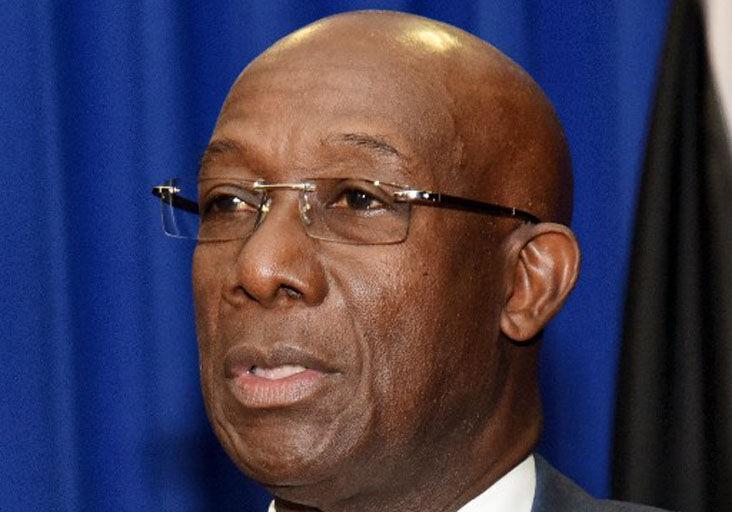(Trinidad Express) Prime Minister Dr Keith Rowley has accused the Opposition of using “xenophobic” statements to hinder The Immigration (Caribbean Community Skilled Nationals) (Amendment) Bill, 2022, which he said could potentially harm this country’s Caricom relations.
The bill was passed late Friday, without amendments, with 19 votes for and 11 against.
Speaking earlier during debate on the bill in Parliament, at the Red House, Port of Spain, on Friday, Rowley took particular issue with the contribution of Naparima MP Rodney Charles.
The PM said he was “sickened to the core to accept that that was a presentation in the Parliament in 2022 by a Member of Parliament, at a time when all we can do for ourselves in the Caribbean is try and pick up the pieces”.
Rowley said the Opposition coming to the Parliament to ask for justification for the bill, which was already happening in the Caribbean and has been ventilated at all levels, was “backwards”.
He questioned the reaction of other Caricom countries should they see an MP in the T&T Parliament “denigrating” the country’s attempts at the Caribbean Single Market Economy (CSME).
He said it was the policy of the United National Congress (UNC) to “undermine Caricom”, and recalled there was “pain” at the time of the collapse of the West Indian Federation in the 1950s.
He later outlined some benefits to the Caribbean of a more unified Caricom, and said the Opposition showed that “nothing” had been learned.
Rowley said the UNC had a habit of “annoying” other members of Caricom, and the Government was being accused of trying to implement the bill at the wrong time.
The Opposition has contended that T&T citizens will lose jobs to a “flood” of Caricom nationals with the bill while many remain without jobs after the height of the Covid-19 pandemic.
The Prime Minister said the UNC was putting T&T’s interests “at risk” in other countries as this country was benefiting from the Caricom movement among other territories and dominating markets.
This included produce and manufactured goods sold in other Caricom countries while T&T nationals were also able to migrate to those countries and benefit.
Rowley said T&T’s goods and produce could be boycotted in those markets and there would be an impact locally.
He said one Caricom prime minister had said T&T’s goods dominated that market and “we have no problem with that”.
However, Rowley said the PM said that while “we have nothing to trade”, there were people in that country who could be granted some access to T&T and also benefit.
He recalled that T&T had committed to a unified Caricom, recalling the Chaguaramas Treaty, and said the Government was trying to legislate these actions.
“We are beneficiaries, too,” Rowley said.
Rowley said the bill would not be “an open door” as is being claimed by the UNC, but would see a movement of skills.
He said the movement would balance itself, and accused Charles of “a kind of wickedness” and of “misrepresenting some facts”.
He said of the Caribbean that “we are in this together”, and it was because of Caricom people not seeing themselves as together that neighbours were being viewed as “enemies”.






